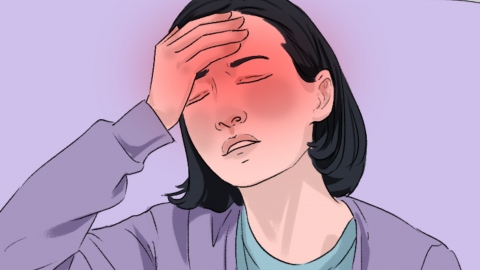What are the causes of fever due to lung inflammation?
Generally, the causes of fever associated with pulmonary inflammation may include dietary factors, emotional factors, bacterial infection, viral infection, and fungal infection. Symptomatic management through general treatment and medication is usually required. If symptoms persist, it is recommended to seek timely medical attention and undergo appropriate treatment under the guidance of a physician. A detailed explanation is as follows:

1. Dietary Factors
Consuming spicy or excessively hot foods during pulmonary inflammation can lead to excessive heat production in the body, resulting in a sensation of internal fever. It is recommended to adjust the diet, avoid spicy or excessively hot foods, and maintain a bland diet.
2. Emotional Factors
Discomfort symptoms such as cough, sputum production, and loss of appetite caused by pulmonary inflammation, if not relieved for a prolonged period, may lead to irritability and anxiety, inducing a feeling of internal heat. Maintaining a positive and optimistic mindset is beneficial for alleviating this sensation.
3. Bacterial Infection
Infections caused by bacteria such as Streptococcus pneumoniae and Staphylococcus aureus can trigger immune responses, releasing inflammatory mediators that cause local tissue damage and fever. Toxins produced by bacteria can further exacerbate inflammation and lead to systemic symptoms, possibly accompanied by cough, sputum production, and chest pain. It is recommended to follow medical advice and use medications such as amoxicillin capsules, roxithromycin tablets, and cefuroxime axetil tablets to alleviate symptoms.
4. Viral Infection
Viral infections such as influenza virus and coronavirus can also cause pulmonary inflammation. During viral replication, lung cells are damaged, triggering immune responses and the release of inflammatory factors, leading to fever and pulmonary inflammation, often accompanied by cough, fever, and fatigue. It is recommended to follow medical advice and use medications such as ribavirin tablets, acyclovir tablets, and oseltamivir phosphate granules to alleviate symptoms.
5. Fungal Infection
Fungal infections such as those caused by Aspergillus and Candida species can also lead to pulmonary inflammation. After invading the lungs, fungal metabolic products and structural components activate the immune system, triggering inflammatory responses that result in fever and lung damage, possibly accompanied by cough, sputum production, and difficulty breathing. It is recommended to undergo treatment under medical guidance using medications such as fluconazole capsules, voriconazole tablets, and itraconazole hydrochloride capsules.
During treatment, it is recommended to take medications as prescribed by a physician and maintain healthy lifestyle habits, such as regular exercise and consistent sleep patterns, which can aid in recovery.
References
[1] Chen Yang, Wang Jie, Wang Xueyan. Analysis of influencing factors of severe Mycoplasma pneumoniae pneumonia in children [J]. Journal of Southeast University (Medical Edition), 2025, 44(01): 127-132.
[2] Zhao Shiguo, Zhang Chenmei. A case of Dravet syndrome child with convulsive seizure induced by fever due to severe pneumonia: nursing care [J]. Nursing Journal of Chinese People's Liberation Army, 2025, 42(01): 111-114.




